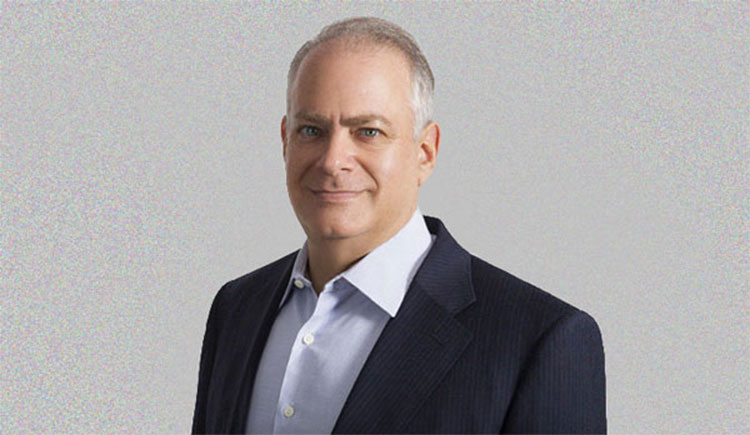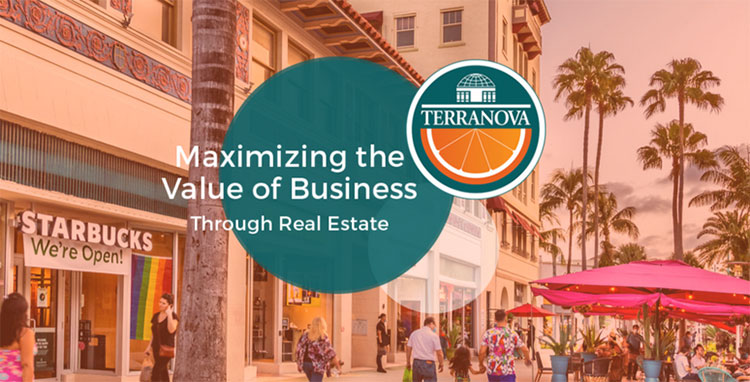Adjusting for Market Changes: A Business Case Study of Stephen Bittel’s Terranova

It is the dream of every entrepreneur to see their company grow, taking on new challenges as the years in business become decades. However, one challenge that is often not thought about in the early years is the inevitable changes that will occur as your business ages.
Whether it be markets or technologies, change is the one true constant in business and very few of the most successful businesses today continue to operate as their founders originally envisioned. Twitter began as a network where people could find and subscribe to podcasts. Youtube was a video-based dating service. While PayPal has always focused on payments it has gone through many permutations since it was developed over twenty years ago, originally developed to allow people to “beam” payments from their PDAs.
As the world evolves the needs of consumers will inevitably change with it, and staying in tune with the way things are shifting while having the flexibility to adjust your plans accordingly is imperative to the survival of your business. To further explore this below we look at the evolution of Terranova Corporation, one of the top commercial real estate companies in Southern Florida.
The business was founded over 40 years ago by Stephen Bittel, and for the first two decades its strategy consisted of purchasing properties such as shopping centers in suburban markets. At the time, the young families moving outside of the city for more space at cheaper prices meant that these were lucrative investments with high returns, but at the turn of the millennium things began to change. The younger generation were opting to live in more urban areas, and rather than stick with the strategy that had worked in the past, Bittel had the company pivot and instead began investing in properties that were in downtown walkable cores.
It starts with an idea
Bittel himself was born and raised in Southern Florida, growing up in Miami before leaving his balmy home for university up the coast in icy Maine at Bowdoin College. After graduating magna cum laude from the university in 1978 with a degree in economics, Bittel was awarded the Watson Fellowship and was given a grant to travel abroad in Europe.
After returning from Europe he applied and was accepted to the University of Miami School of Law, assuming he would follow in the footsteps of his father and grandfather before him. However, in order to support himself he also took a position at a commercial real estate firm and quickly found he had a knack for real estate. In fact, by his second year of law school his company offered to take him to commission-based compensation instead of salary so he could earn more money, but Bittel realized he could do even better by starting his own real estate company.
The year was 1980, and in a time before the internet made connecting with those across the globe easy, Bittel had the advantage of relationships with Europeans who he hoped to excite about the prospect of southern Florida commercial real estate and invest their capital through him.

Naming his business “Terranova” or “new world” in Latin, the company started in Bittel’s home office, with the company’s first logo being created by an art student from the University of Miami and its first investments were in “friends and family” syndications of two small unanchored strip shopping centers down the street from the wine and gourmet store started by his grandparents in the 1950’s. Even through the trials that come with starting a business, he was able to graduate from the University of Miami School of Law with a law degree and pass the bar exam in 1982.
Building a business strategy
After successfully growing his business out of his home and into an office with more employees, Bittel faced one of his first major challenges in the late 1980’s when the commercial real estate market went into recession. However, by offering his company’s management services to insurance companies and banks who had involuntarily become owners of commercial real estate when loans defaulted, Terranova was able to ride out the recession and come out of it well-prepared for serious growth. When the markets rebounded, Bittel focused on growing his company’s portfolio by purchasing entire shopping centers and strip malls in the municipalities of Miami-Dade County. Young and growing families were moving out to these suburban areas in droves where they could get more space for less money, and as a result there was an increasingly high demand for easy access to grocery stores, pharmacies and popular chains. Bittel worked to develop relationships with major companies such as Publix, Walgreens and Starbucks, using these large chains as an anchor that would drive traffic into their shopping centers that smaller businesses could then take advantage of. This also meant that their increasingly massive portfolio could be easier managed through holding multiple leases with the same tenant, who saw sales grow in tandem with the sprawl of residential property. At their peak within the suburban market, Terranova had one of the largest suburban supermarket-anchored portfolios in the state with a property base of over 8 million square feet, owning and operating numerous office buildings, industrial parks, multi-family and self-storage assets in addition to the strip centers.
Readjusting with the times
While Bittel’s strategy was successful for over two decades, he was careful to not let this success blind him to the changes in the market. By the early 2000’s he began to notice that his own younger employees were no longer purchasing new homes in some of the suburban areas of Miami such as Kendall or Glenmar Heights. Instead, they were choosing to purchase and renovate smaller, older homes in locations closer to the city center. Recognizing this subtle shift would only continue to grow as more time passed, Bittel made the decision to begin the re-diversification of Terranova’s portfolio and focus on the high street, with their first buildings being in an eight-property portfolio on Miracle Mile, a stretch of the main east-west road in Coral Gables’ central business district. Although at the time nobody paid much attention, Bittel believed it was the right play because these walkable urban cores were where more and more people wanted to live and work, and has since continued to build their Miracle Mile portfolio.
The second urban location Bittel chose for development was Lincoln Road on Miami Beach. Made one of the nation’s first pedestrian malls in the 1960’s when the road was closed to traffic, this time Terranova made waves by purchasing $52 million worth of property on the street at $850 per square foot – a price that was seen at the time as exorbitant. However, this proved to be a smart purchase, and in 2014 the company again made headlines, but this time for being part of one of the largest property sales in the history of southern Florida, selling their property on the road for a staggering $342 million.
Bittel’s intuition about urban centers proved correct, as both areas have seen major increases in both foot traffic and value since Terranova initially began to add them to their portfolio. In 2016, the city of Coral Gables embarked on a $21 million streetscape project for Miracle Mile, making extensive improvements such as widening the sidewalks, updating the original trolley system and offering free Wi-Fi with the intention of improving the pedestrian experience within the area. The project was completed in 2018, and there was near instantaneous improvement of tourism, local revenue, residential components and commerce. In 2019 it was announced that Lincoln Road would be following in the footsteps of Miracle Mile with a rejuvenation project of its own, helmed by James Corner, the landscape architect responsible for New York’s High Line.
Remaining agile
As with his previous shift from suburban shopping centers to urban cores, Bittel has remained flexible and open to any new winds that may change the direction of consumer habits again. During the coronavirus pandemic he worked with tenants to arrange for short-term leases, capitalizing on the popular concept of a pop-up space to ensure that buildings remained occupied. Times of distress are also when Bittel believes are the best chance to put Terranova’s balance sheet to work, and they have begun to focus on expanding their portfolio of assets through opportunistic acquisition of distressed debt and equity.
In looking at the business trajectory of Terranova, one can see the evolution of a business over the course of four decades. While it can be easy to believe that once you have found a business strategy that works you should stick to it, in reality it requires much more nuance and remaining aware of the timing of markets. By maintaining flexibility and agility in his business strategy, Bittel has been able to build his business for over four decades, with many more likely to come after.
Connect with Stephen Bittel on ThriveGlobal and Medium.
Bring the best of the CEOWORLD magazine's global journalism to audiences in the United States and around the world. - Add CEOWORLD magazine to your Google News feed.
Follow CEOWORLD magazine headlines on: Google News, LinkedIn, Twitter, and Facebook.
Copyright 2025 The CEOWORLD magazine. All rights reserved. This material (and any extract from it) must not be copied, redistributed or placed on any website, without CEOWORLD magazine' prior written consent. For media queries, please contact: info@ceoworld.biz








